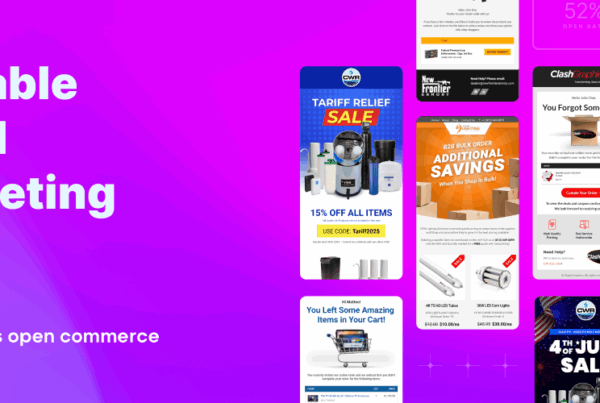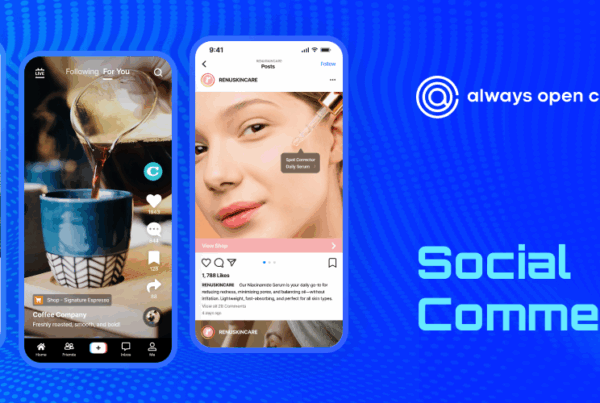In the early days of online shopping, generic websites with countless products were all we had. But our expectations advance together with technology. We now demand personalized experiences that cater to our unique tastes and preferences. And e-commerce businesses who fail to deliver risk falling behind the competition.
Understand why personalized e-commerce experiences are not only important but also the future of online shopping. So buckle up and get ready for a journey into the world of customized digital commerce!
The History of Online Shopping
The history of online shopping can be traced back to the 1970s when Michael Aldrich invented teleshopping. It was an old edition of e-commerce, but it paved the way for future developments.
Fast forward to the early 1990s, e-commerce was acquiring friction with Amazon and eBay. These platforms offered consumers access to numerous products from all over the world.
However, despite its convenience and accessibility, generic online shopping experiences have always had their limitations. Customers were often bombarded with irrelevant products that didn’t match their preferences or needs. This led to frustration, time wastage and decreased customer satisfaction.
This is where personalized e-commerce experiences come in; they offer customers tailored product recommendations based on data analysis such as browsing history and purchase behavior. And this has revolutionized how people shop online today!
The Problem with Generic Online Shopping Experiences
The convenience of online shopping has changed consumer habits. As e-commerce continues to grow, so do difficulties. One major problem is the generic online shopping experience.
Customers are often bombarded with irrelevant offers and recommendations on websites that lack personalization. This can lead to frustration and insufficient trust. Generic experiences fail to address customers’ needs or preferences, resulting in low engagement and conversion rates.
Furthermore, these non-personalized experiences make it difficult for companies to stand out. Customers crave unique interactions and tailored experiences that cater specifically to their interests and buying behaviors.
Without personalized e-commerce experiences, businesses risk losing customers’ loyalty and reducing repeat purchases. This is a significant challenge that all e-commerce companies must directly face.
Fortunately, there are solutions available for businesses seeking more effective ways to engage customers online through personalized e-commerce experiences. By implementing data-driven strategies such as customer segmentation and behavioral analysis, brands can provide tailored recommendations based on individual browsing habits and purchase histories.
Generic online shopping experiences hinder both customer satisfaction and business growth potential by failing to meet consumer expectations for customized interactions. Businesses must prioritize personalization if they hope to succeed in today’s fast-paced digital marketplace.
How Personalized E-commerce Experiences Solve the Problem
Personalized e-commerce experiences are the future of online shopping, as they provide solutions to big problems faced by shoppers. One such problem is that generic online shopping experiences fail to cater to individual preferences and needs. Generic websites usually recommend products based on popularity or bestsellers, which may not always align with a shopper’s interests.
However, personalized experiences solve this issue by using data analysis and machine learning algorithms to offer tailored recommendations. With each interaction, these systems learn more about the shopper’s behavior and preferences, allowing them to make increasingly accurate product suggestions.
These personalized recommendations lead to higher customer engagement rates since customers feel like their needs are being met at an individual level. This helps build trust between the consumer and brand, leading to stronger customer loyalty.
Moreover, personalization helps reduce cart abandonment rates since it’s easier for customers to find what they need. Customers who have a positive experience with personalization are also likely to return for future purchases.
The Benefits of Personalized E-commerce Experiences
Personalized e-commerce experiences offer numerous benefits for both customers and businesses. For customers, it means a more enjoyable online shopping experience that caters to their individual preferences.
Increase Customer Satisfaction
One big benefit is increased customer satisfaction. With personalized recommendations based on browsing history or previous purchases, customers are more likely to find products they want. This leads to higher levels of customer loyalty and repeat business.
Improved Conversion Rates
Another benefit is improved conversion rates. By tailoring product recommendations and offers to each individual, businesses can increase the chances of a sale being made. Personalization also reduces the likelihood of cart abandonment since customers are shown items that align with their interests.
Better Data Collection
Furthermore, personalization allows for better data collection and analysis which can lead to insights into consumer behavior patterns. These insights help businesses decide about marketing strategies, pricing structures, and other factors that affect sales performance.
Providing personalized e-commerce experiences can create stronger relationships with their customers while increasing revenue growth through improved conversions rates and data-driven decision making processes.
The Future of Personalized E-commerce Experiences
Personalized e-commerce experiences are the future of online shopping. As technology improves, it’s simpler for businesses to collect data regarding customers’ behaviors. With this information at hand, they can provide more tailored recommendations and personalized shopping experiences
- We can expect more advanced personalization features that will make online shopping feel like an in person interaction with a sales associate in the future. For example, augmented reality could be used to show customers how products would look in their homes or on their bodies before making a purchase.
- Voice assistants like Alexa and Google Home could play a role in personalized e-commerce experiences. Customers might be able to use these devices to order products by voice command or receive customized product recommendations based on previous purchases.
The benefits of personalized e-commerce experiences are clear: increased engagement rates, higher conversion rates, and greater customer retention. As we move forward into an increasingly digital world where consumers demand more from their online shopping experience; companies that fail to implement personalization strategies will be left behind.
So if you’re looking to take your e-commerce business to new heights and beyond then investing time into personalizing your customer’s journey should definitely be on top of your agenda! With our team of excellent developers – AOC, you will have no doubts about obtaining a more personalized website that will show your customers what they want.












